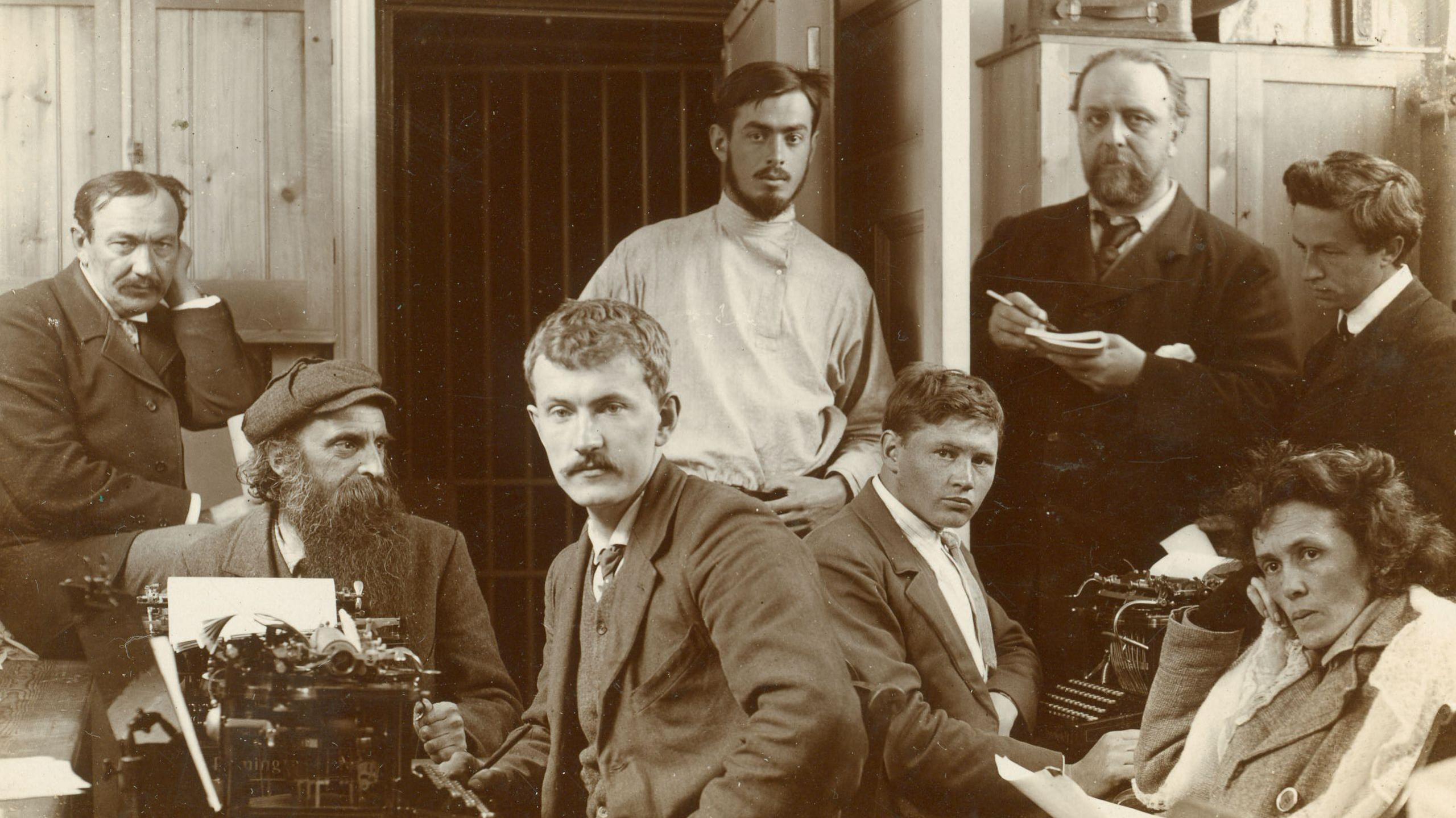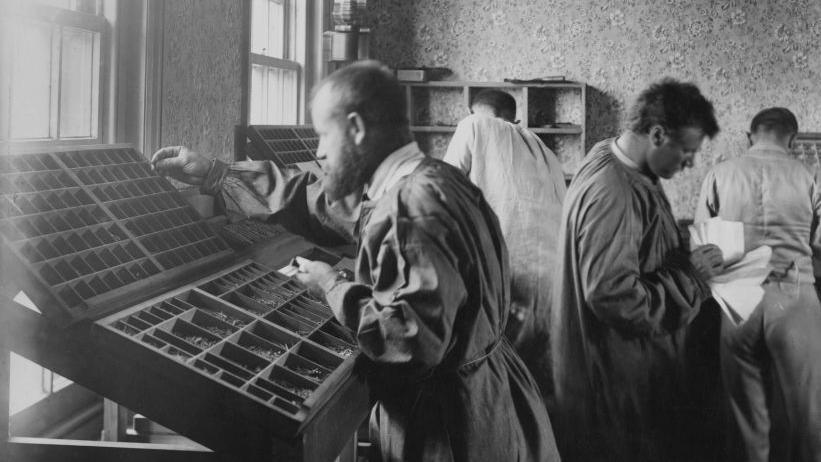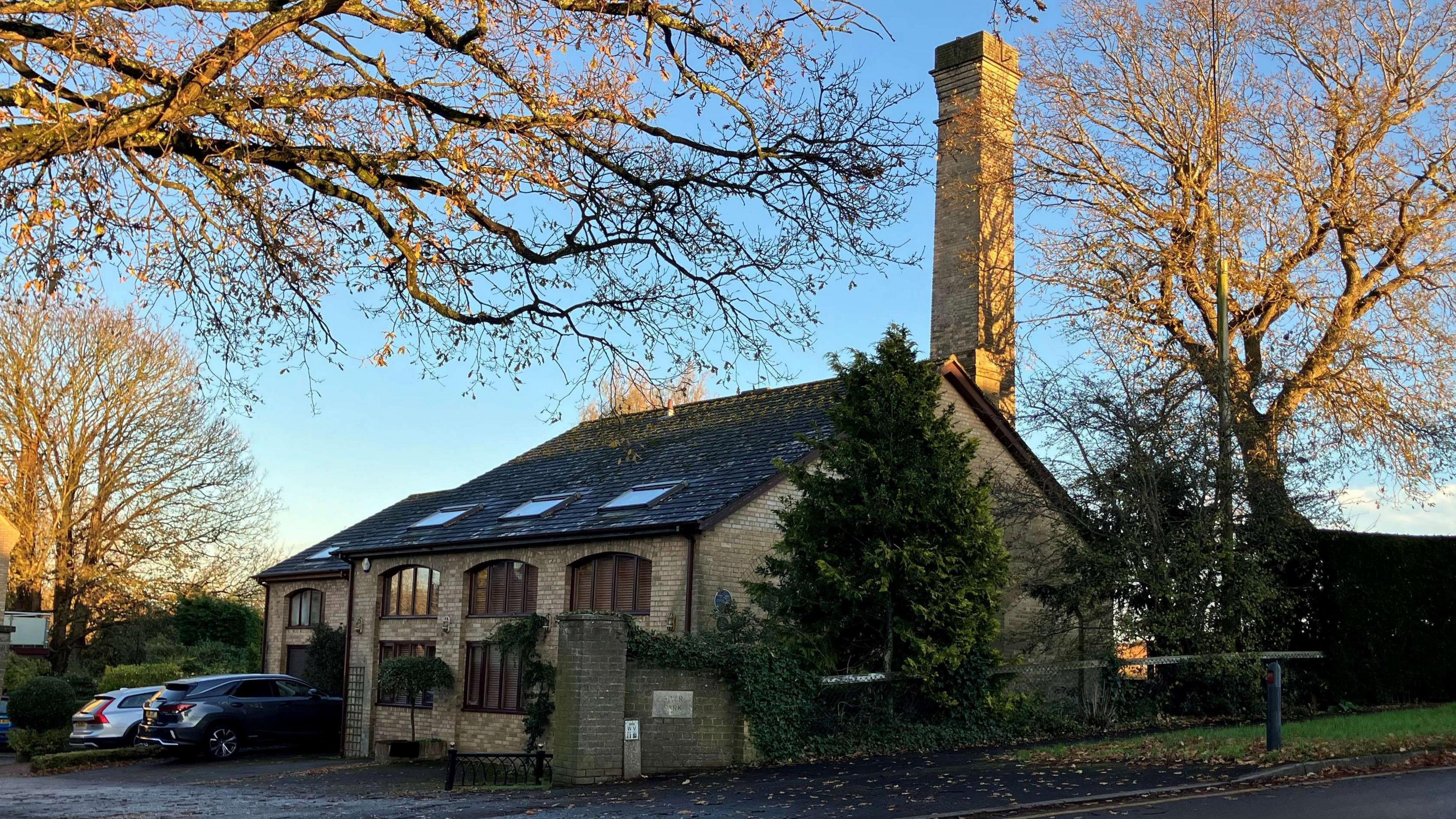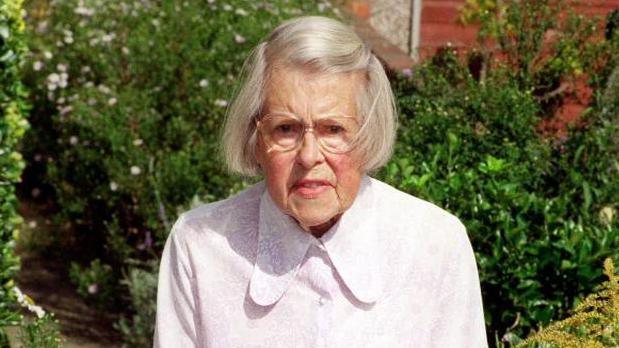The home where Russians printed Tolstoy in secret
Tuckton House was occupied by Russian emigres from 1900 - 1908
- Published
A stone chimney is all that remains of a building with explosive links to the Cold War, revolution and one of the world's most famous writers.
Now nestled in a housing estate, you might not look twice at the site of the old waterworks at Tuckton in Bournemouth.
But at the turn of the 20th Century, the Grade II listed building was occupied by Russians armed with a printing press.
Known as the Free Age Press, they secretly printed pacifist literature for smuggling into the motherland, including works by Leo Tolstoy.

Members of the Free Age Press lived in Tuckon House and printed Tolstoy's political and social writings - banned in Russia - at the nearby waterworks
Tolstoy, whose novels included War and Peace and Anna Karenina, was seen as promoting dangerous ideas at the time.
His works were banned in Russia because he aimed to improve the lives of workers and peasants - but were later lauded after the Russian revolution in 1917.
Behind closed doors, newspapers were also printed on thin rice paper, which could be disguised as letters so as not to arouse the suspicions of the security services.
The group was led by Tolstoy's friend and literary agent, Vladimir Tchertkoff, who had been exiled by Tsar Nicholas II.

Vladimir Tchertkoff [pictured] set up the publishing house
Tchertkoff's mother already lived in Southbourne and bought Tuckton House for the commune.
According to local historian Alex McKinstry, life there was tough and the group strictly adhered to Tolstoy's principles.
"They were vegetarian and the house was sparsely furnished - there were no carpets and curtains," he said.
"Tolstoy's papers choked many rooms but there was a large vault in which all of his works were kept, which was said to be earthquake-proof."

Only a brick chimney remains of the old waterworks at Tuckon
The Russians also set up a football team called the Old Tucktonians who played against locals while wearing gold and green.
Tchertkoff laid a pitch nearby and had it floodlit so workers in the town could play after dark.
An amnesty saw the short-lived commune leave the old waterworks in 1908 and return to Russia.
But the influence of the community did not end there.

Melita Norwood was revealed as a Soviet spy after years of sharing Britain's atomic weapons secrets
A 25-year-old woman from Pokesdown, whose father was a Latvian clerk at the Free Age Press, became the Soviet Union's most valuable and longest-serving British spy.
Recruited in the 1930s, Melita Norwood's job as a secretary at the British Non-Ferrous Metals Research Association gave her access to Britain's atomic weapons secrets, which she passed to Russia.
Her career in espionage helped accelerate the Soviet Union's nuclear bomb programme.
She was exposed in 1999 after the defection of a former Soviet archivist, but was never prosecuted and died unrepentant in 2005, aged 96.
Get in touch
Do you have a story BBC Dorset should cover?
You can follow BBC Dorset on Facebook, external, X (Twitter), external, or Instagram, external.
Related topics
- Published1 January 2015